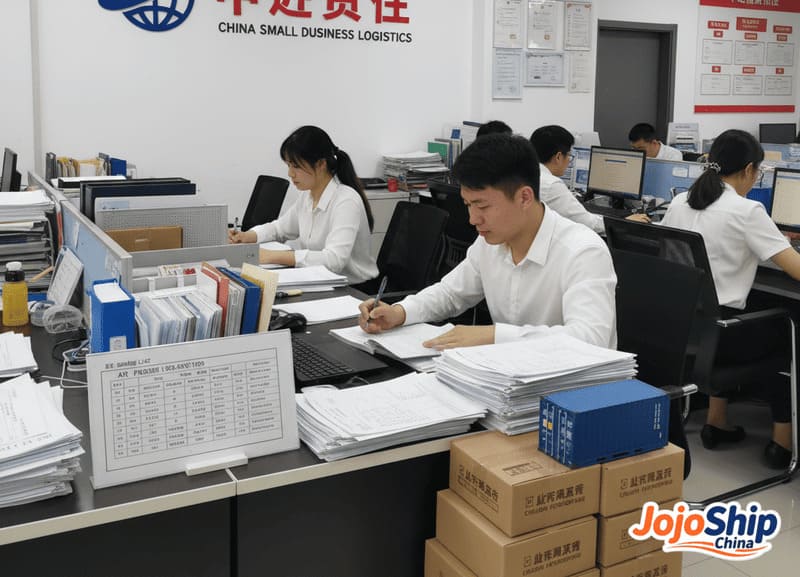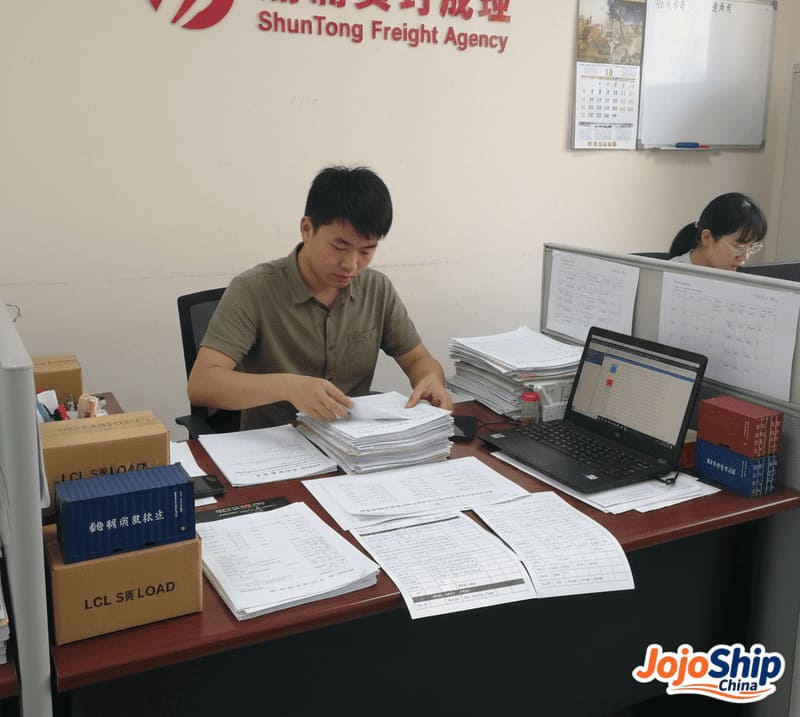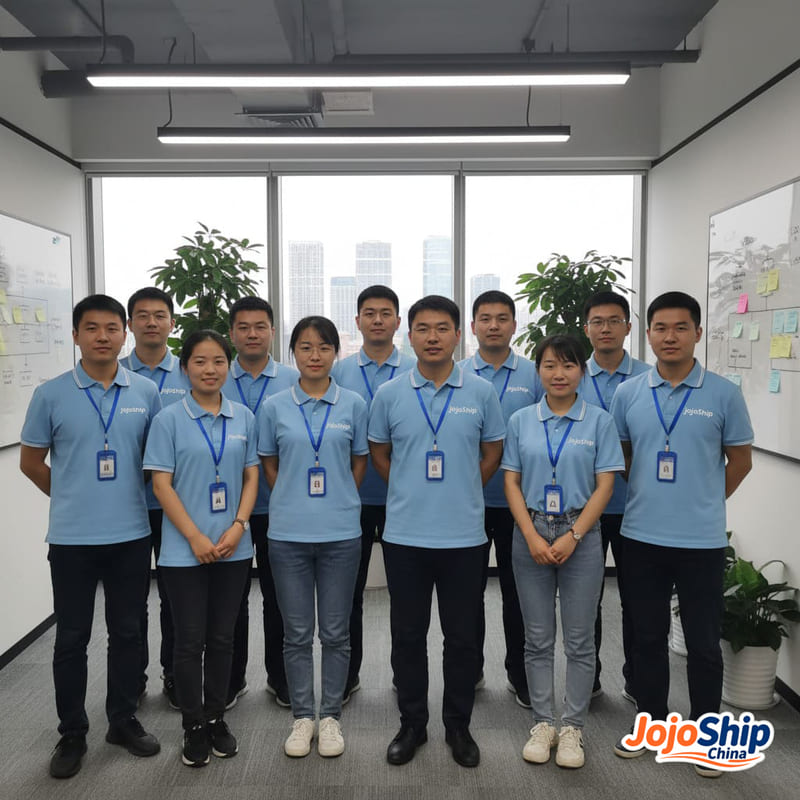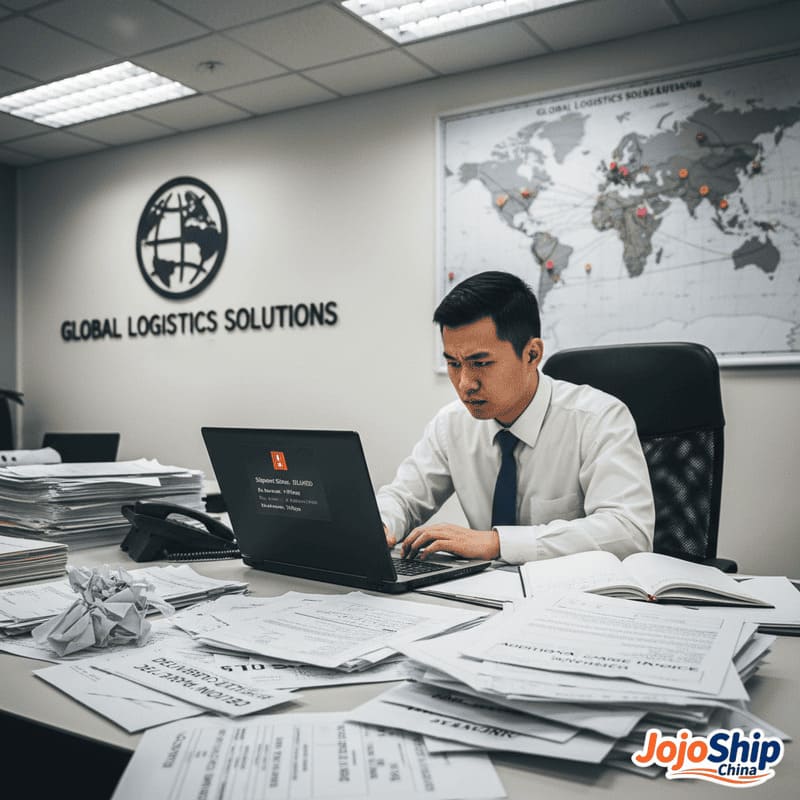Small businesses importing from China face overwhelming logistics challenges. Between language barriers, complex regulations, and inconsistent service levels, finding a trustworthy freight forwarder can feel like searching for a needle in a haystack.
The most reliable Chinese freight forwarders for small businesses include JojoShip China, DFH Logistics, Sino Shipping, Winsky Freight, and CNXtrans. These companies specialize in small-volume shipments, offering services like cargo consolidation, transparent pricing, customs clearance assistance, and door-to-door delivery options tailored for smaller importers.

As someone who's helped hundreds of small businesses navigate Chinese logistics, I've seen firsthand how the right freight forwarding partner can transform a struggling import operation into a smooth-running supply chain. Let me share what I've learned about finding reliable partners in this complex landscape.
How to Find a Reliable Freight Forwarder in China?
Many small businesses make the mistake of choosing Chinese freight forwarders based solely on price quotes. This approach often leads to hidden fees, poor communication, and shipment delays that ultimately cost more than working with a reputable provider.
To find a reliable freight forwarder in China, start by searching industry directories like Freightos or Alibaba, check for legitimate business licenses and certifications like NVOCC or IATA, read reviews from similar businesses, verify their physical office locations, and test their communication responsiveness before committing to a full shipment.

Finding reliable partners in China requires more due diligence than you might expect. When I first started working with Chinese freight forwarders, I quickly learned that a company's online presence doesn't always reflect their actual capabilities.
Essential Verification Steps for Chinese Freight Forwarders
| Doğrulama Yöntemi | What to Look For | Red Flags |
|---|---|---|
| Business License Check | Valid Chinese business registration | Yeni kurulan şirketler, belirsiz sahiplik |
| Industry Certifications | NVOCC license, IATA membership, ISO certification | Missing or expired certifications |
| Office Verification | Physical presence in key shipping hubs | Yalnızca sanal ofisler, ikamet adresleri |
| Müşteri Referansları | Similar-sized businesses in your industry | Unwillingness to provide references |
| İletişim Testi | Response time, English proficiency | Delayed responses, generic answers |
| Çevrimiçi Varlık | Professional website, social media activity | Outdated information, poor online reviews |
I always recommend requesting a video call with potential freight forwarders. This simple step can reveal a lot about their operation. During these calls, I look for signs of a proper business environment and ask to see their warehouse facilities if they offer consolidation services.
Another approach I've found effective is starting with a small test shipment1. This allows you to evaluate their communication, documentation handling, and problem-solving abilities before committing to larger orders. A reliable freight forwarder should handle even small shipments professionally.
Industry associations can also be valuable resources. Organizations like the China International Freight Forwarders Association2 (CIFA) maintain directories of accredited companies. While membership doesn't guarantee quality, it does indicate a certain level of legitimacy and commitment to industry standards.
Don't underestimate the value of freight forwarders who maintain offices in both China and your destination country. Companies like JojoShip China have teams in China to manage supplier relationships and export procedures, plus staff in destination markets who understand import requirements and can resolve issues locally.
How Do I Choose a Good Chinese Freight Forwarder?
The freight forwarding industry in China is fragmented, with thousands of providers ranging from one-person operations to large enterprises. Without clear selection criteria, small businesses often make costly mistakes by choosing inappropriate partners.
To choose a good Chinese freight forwarder for small business needs, prioritize those offering LCL consolidation services, transparent all-inclusive pricing, expertise in your specific product category, strong communication in your language, and experience serving businesses of your size with similar import volumes.

After years of helping small businesses import from China, I've developed a systematic approach to evaluating freight forwarders beyond just checking their credentials.
Selection Criteria for Small Business Freight Forwarders
| Criteria | Neden Önemli? | What To Look For |
|---|---|---|
| Service Portfolio | Must match your shipping needs | LCL consolidation, door-to-door options, customs clearance |
| Industry Specialization | Different products have different requirements | Experience with your specific product category |
| Pricing Structure | Hidden fees can destroy margins | All-inclusive quotes, clear breakdown of charges |
| Communication Protocols | Critical for resolving issues | Dedicated account manager, multiple contact channels |
| Technology Platform | Facilitates visibility and control | Online tracking, digital documentation, API integration |
| Warehousing Capabilities | Important for consolidation | Strategic warehouse locations, storage terms |
| Problem Resolution History | Indicates reliability under pressure | Case studies of resolved shipping challenges |
For small businesses, a freight forwarder's ability to handle Less than Container Load (LCL) shipments efficiently is particularly important. I've seen many small importers waste money by working with forwarders who primarily serve full container clients and treat smaller shipments as an afterthought.
Another critical factor is the forwarder's expertise with your specific product category. In my experience, freight forwarders who specialize in certain industries—like DFH Logistics for e-commerce or JojoShip China for electronics—provide more valuable guidance on packaging, documentation, and compliance issues.
I also recommend evaluating a freight forwarder's technological capabilities. In today's market, even small businesses need real-time visibility into their supply chains. Companies like CNXtrans and JojoShip China offer online tracking platforms that provide transparency throughout the shipping process, which I've found reduces anxiety for new importers.
Don't overlook the importance of cultural alignment. Some Chinese freight forwarders have adapted their business models specifically for Western clients, with English-speaking staff and communication styles that bridge cultural gaps. This can dramatically reduce misunderstandings and improve your overall experience.
Finally, consider the freight forwarder's network in your destination country. The best Chinese forwarders maintain strong partnerships with customs brokers and delivery services in major markets, ensuring smooth handling of your shipments from pickup to final delivery.
What Are the Disadvantages of Using a Freight Forwarder?
Many new importers assume freight forwarders always save money and reduce headaches. This misconception can lead to disappointment when they encounter the real limitations and potential drawbacks of these partnerships.
The disadvantages of using freight forwarders include additional cost layers that increase shipping expenses, limited control over carrier selection, potential communication delays through intermediaries, variable service quality across different routes, and dependency risks if your business relies too heavily on a single forwarder's expertise.

Having worked with dozens of freight forwarders over the years, I've experienced both the benefits and challenges of these relationships. Understanding the potential disadvantages helps small businesses manage expectations and create mitigation strategies.
Common Challenges When Working With Freight Forwarders
| Disadvantage | Impact on Small Businesses | Nasıl Azaltılır |
|---|---|---|
| Cost Markup | Reduced profit margins on imported goods | Negotiate transparent fee structures, compare multiple quotes |
| Less Direct Control | Limited ability to make immediate changes | Establish clear SOPs and decision thresholds with your forwarder |
| Communication Delays | Slower problem resolution | Set communication expectations, use forwarders with 24/7 support |
| Service Inconsistency | Unpredictable shipping experiences | Start with smaller shipments, gradually increase volume |
| Knowledge Dependency | Over-reliance on forwarder expertise | Develop in-house understanding of key shipping concepts |
| Limited Carrier Options | Restricted to forwarder's partner network | Work with forwarders offering multiple carrier relationships |
| Variable Attention | Smaller clients may receive less priority | Choose forwarders specializing in small business shipping |
One disadvantage I've seen small businesses struggle with is the additional cost layer. Freight forwarders naturally build their margins into the shipping rates they offer. For very small shipments or businesses with extremely tight margins, these added costs can sometimes outweigh the benefits.
Another common challenge is diminished control over your shipments. When working directly with carriers, you can sometimes make last-minute changes or special requests. With a freight forwarder as an intermediary, these adjustments may take longer or be impossible once the shipping process has begun.
I've also observed that communication can sometimes become a game of "telephone" when multiple parties are involved. Information may get distorted as it passes from the carrier to the freight forwarder to you, occasionally leading to misunderstandings about delivery dates or requirements.
For businesses with highly specialized logistics needs, general freight forwarders may lack the specific expertise required. I once worked with an art importer who found that regular freight forwarders weren't equipped to handle the unique packaging and insurance requirements for valuable artwork.
Some small businesses also experience a knowledge gap when outsourcing their logistics. By relying entirely on freight forwarders, they never develop internal shipping expertise, creating dependency and making it difficult to evaluate whether they're receiving good service and fair pricing.
Despite these potential disadvantages, I've found that for most small businesses importing from China, the benefits of working with a reputable freight forwarder far outweigh these drawbacks—especially when you select partners like JojoShip China that specialize in serving smaller importers.
Sonuç
For small businesses importing from China, reliable freight forwarders like JojoShip China, DFH Logistics, and Sino Shipping offer the best balance of service and value. Look for forwarders with transparent pricing, LCL expertise, strong communication, and experience with your product type. Start with small shipments to test reliability before committing to larger orders.




